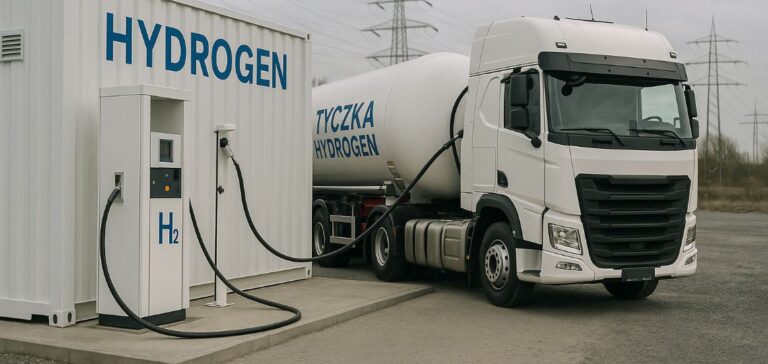Tyczka Hydrogen, a subsidiary of the German Tyczka Group, has become the first operator to be officially certified under the European RFNBO (Renewable Fuels of Non-Biological Origin) scheme by CertifHy. The certificate was issued on 15 April by TÜV SÜD, an independent body recognised by CertifHy to conduct compliance audits. The company operates across the entire hydrogen value chain, including renewable electricity-based production, compression, filling, transport, and application technologies.
This certification confirms Tyczka Hydrogen’s compliance with the European Union’s Renewable Energy Directive (RED II) regarding renewable fuels of non-biological origin. It verifies that its trading and distribution operations meet the EU’s criteria for integrating renewable hydrogen and synthetic fuels into the market.
A precedent in energy traceability
According to Matthieu Boisson, General Manager at CertifHy, Tyczka Hydrogen is now the first energy trader to be certified under one of the EU-recognised voluntary schemes for RFNBOs. He emphasised that this recognition sets a precedent for other players in the sector, highlighting the strategic role of certified traders in reliably delivering renewable hydrogen to consumption centres.
Industrial engagement and market dynamics
With over a century of experience in supplying industrial and energy gases, Tyczka Hydrogen positions itself as a logistical intermediary between hydrogen producers and end users. With this certification, the company can now ensure the traceability of renewable hydrogen transported across its European network, in line with the sustainability standards defined by the European Union.
Thomas Zorn, Managing Director of Tyczka Hydrogen, described the certification as a major achievement following years of preparation. He also noted that the certification was obtained in record time, strengthening the group’s operational credibility in the strategically important green hydrogen segment.






















